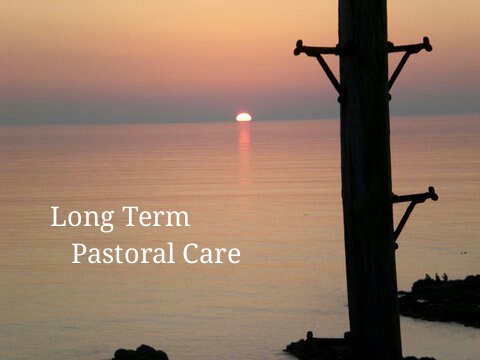Going the Distance in Pastoral Care
/The Situation
Joe had a stroke and is no longer functioning. His family has to care for him 24/7. Andy is a young boy with autism. He needs help and so do his parents. Joan is showing signs of dementia. She is not the only one who needs help.
Are you facing a situation in your church that will require pastoral care over a long period of time? If you don’t have a situation like that now – you will in the future. Are you ready for it? Caring for people in the local church is challenging work. As a pastor, I remember numerous occasions where a need for long term care arose.
The Need
Sometimes the need for long term care can be challenging if a church is not prepared in advance. What does it look like to persevere? Long term crises can include a spouse who suffers a stroke and is incapacitated, care for the elderly, Alzheimer’s, teen pregnancy, a child with autism, or simply a family with ongoing counseling and pastoral care needs. All of these represent a challenge to a church.
Current Realities
What are some current societal realities that make this issue so important?
• Traditional extended-family care is no longer the norm. When the single mother of three small children becomes hospitalized and does not live in close proximity to family, the burden for care falls quickly upon the relationships in the body of Christ. This opportunity for service not only blesses the family in need, it also shows the gospel in action to those outside the church who see the care that is given.
• The following statement from To Be the Hands of God: A Woman's Journey, One Congregations Challenge by Judith Ransom, confirms the breakdown in extended family care:
We are a nation on the move with little in savings, little nearby family support, and health insurance that either does not cover policyholders completely or is non-existent. Split families, step-families, extended families, and no family at all—each add their own peculiar mix of problems and solutions. No wonder illness is scary. Roles are no longer rigidly defined and it is anyone’s guess where support will be found in a crisis.
Gospel Incentives
What incentives and imperatives do the Scriptures bring to this challenging area of gospel ministry and pastoral care? Two passages are important for the task: 1 Peter 4:8 and Ephesians 3:14-19. In 1 Peter 4:8, we are called to “love one another deeply.” The word translated deeply can also mean “constant”. “Keep love constant” would be a good translation. The word describes something that is stretched or extended. The love of the saints keeps stretching, in both depth and endurance.
This connects nicely with Ephesians 3 where Paul prays that we would “grasp how wide and long and high and deep is the love of Christ, and to know this love that surpasses knowledge…” Persevering love grows out of the Gospel. You must start here if you are going to find the strength and incentive to go the distance with people. Within the context of 1 Peter 4:8, we are then called to “offer hospitality without grumbling” as well as utilize both word and deed gifts in the situation.
Copyright © 2013 Timothy S. Lane. All rights reserved.


